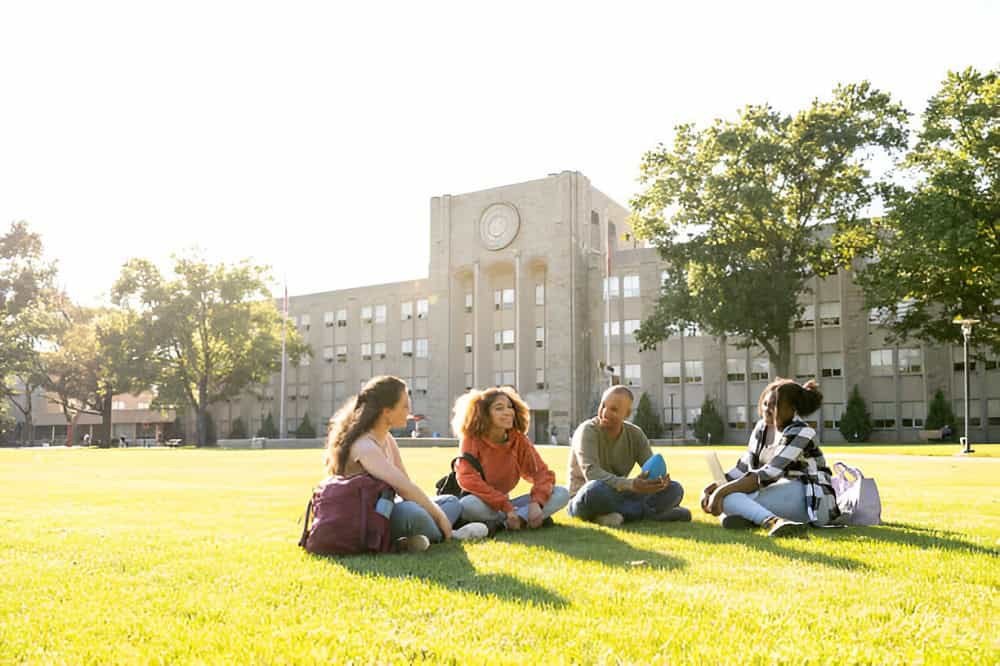Wants to know cost of living in UK for international students?
Studying in the UK is an exciting opportunity, but it’s important to know how much it will cost to live there.
So, here is where that you can get all the information that you are looking for.
This guide will help you to understand the different expenses that international students face in the UK.
Therefore, by the end, you’ll have a better idea of how much money you’ll need to manage your life as a student in the UK.
Table of Contents
ToggleAccommodation Expenses
Finding a place to live is usually the highest amount of money that you’ll spend as an international student in the UK.
A lot of first-year students go for university halls. They’re handy and you get to meet other students easily.
Prices depends around a bit depending on where you are and what’s included, but you’re looking at about £400 to £800 each month in this scenario.
There’s also private student housing. It often comes with nice features, but it’ll cost you more around £500 to £1,000 on a monthly basis.
If you want to save some cash, sharing a house or flat with others could be the way to go.
This might set you back £300 to £600 a month, depending on the area that you are.
Keep in mind that where you choose to live makes a big difference in cost. London and other big cities will hit your wallet harder than smaller towns or countryside spots.
Food and Groceries
How much you spend on food really depends on what you like to eat.
Most students find they need about £150 to £200 a month for groceries.
Cooking your own meals at home usually costs less than eating out all the time.
But let’s be real, sometimes you want to grab a meal out or order in, and that can run you anywhere from £10 to £30 each time.
A lot of supermarkets and restaurants give student discounts, so keep an eye out for those.
Meal deals and special offers can help you to save some money too. Don’t forget that your university probably has cafeterias with affordable food options as well.
Some student housing even offers meal plans, which can make budgeting for food a bit easier.
Transportation Costs
Getting around in UK cities is pretty easy with public transport.
Buses and trains are the go-to options for most people.
As a student, you can usually get a monthly pass for about £50 to £100, depending on where you are and how far you need to go.
Specifically when it comes to London, it might cost more than you think, but don’t worry, students can get discounts on a type of card that is called as Oyster cards.
It is noteworthy to mention that a lot of universities offer special travel cards for students that can save you quite a bit on local transport.
If you’re into being green and saving money, cycling is a great option.
Majority of cities in the UK got progams that are based on the sharing option of bikes that you can use.
In addition to that, don’t forget about walking! In many UK towns and cities, you can get to a lot of places on foot in no time.
Utilities and Bills
If you’re living in private housing, you’ll need to think about utilities too.
Things like electricity, gas, and water usually cost somewhere between £40 to £80 a month.
This can change based on how much you use and how many people you’re sharing with.
For internet and phone plans, you’re looking at about £20 to £40 each month.
A lot of providers have special deals for students, so it’s worth checking those out as well.
One thing to remember is that in the UK, you need a TV licence if you want to watch live TV. But the issue is that It costs around £157.50 per year.
However, if you’re sharing a place with others, you can split this cost, which makes it a bit easier on everyone’s wallet.
Healthcare and Insurance
If you’re coming to study in the UK for more than six months, you’ll usually be able to use the National Health Service (NHS).
This means that you can get healthcare for free or at a low cost.
Just keep in mind that you might need to pay something called an Immigration Health Surcharge when you apply for your visa.
The NHS covers a lot, but some students decide to get extra private health insurance as well.
It’s not necessary, but some people like having it for extra coverage or for things that the NHS doesn’t include.
Just to give you an idea, in England, you’ll pay around £9.35 for each prescription item. Remember that this might be different depending on the area that you are.
Academic Expenses
There’s more to think about than just tuition when it comes to money for your institute/college.
You’ll need to set aside some cash for things like textbooks and course materials.
This could have a range from £100 to £500 each year, depending on what you’re studying.
A lot of universities have places where you can buy used books or find them online for a cheaper price.
Also don’t forget about tech stuff, like laptops or special softwares that you might need.
Some colleges may also take you on field trips, so when you are in a situation like this, you might need extra equipments, so you’ll want to keep that in mind when you’re planning your budget in the first place.
Entertainment and Social Life
Being a student isn’t just about studying – you’ll want to have some fun too.
The good news is that student union events are usually pretty easy on the wallet, and there are lots of free activities throughout the year.
If you like going to the movies, you can usually get in for about £5 to £10 with your student discount.
Theatre shows and concerts might cost a bit more, usually between £15 and £50, however, it might get higher for bigger events.
If you’re into sports or staying fit, you might want to join a gym or a sports club.
This could cost you anywhere from £15 to £50 a month, depending on what kind of a place it is and where it’s located.
Conclusion
Getting an idea on how much of the cost that you need to spend in the UK is really important for international students.
It helps you to manage your money well and enjoy your time while studying over there.
When you think about all your expenses – where you are going to live, what you are going to eat, how you are going to have some fun, and what you need for your studies – you can create a budget that works for you.
Planning your finances carefully by using the student discounts, and maybe getting a part-time job can all help you to keep your costs under control.
If you’re thinking about studying in the UK, it’s a good idea to do some more research.
Don’t forget to talk to the international student office at the university that you are planning to go to.
This is because they can give you some advices that fits your specific situation.
Contact TEVS a leading UK student visa consultants in Sri Lanka to get UK student visa.







